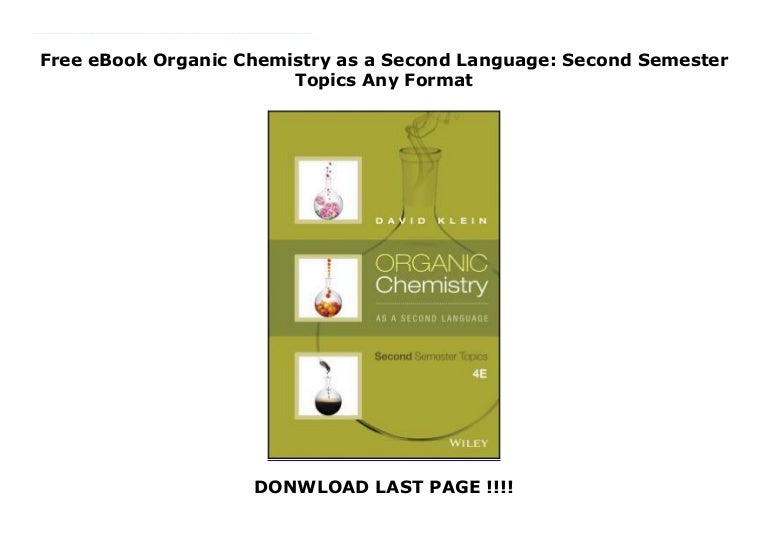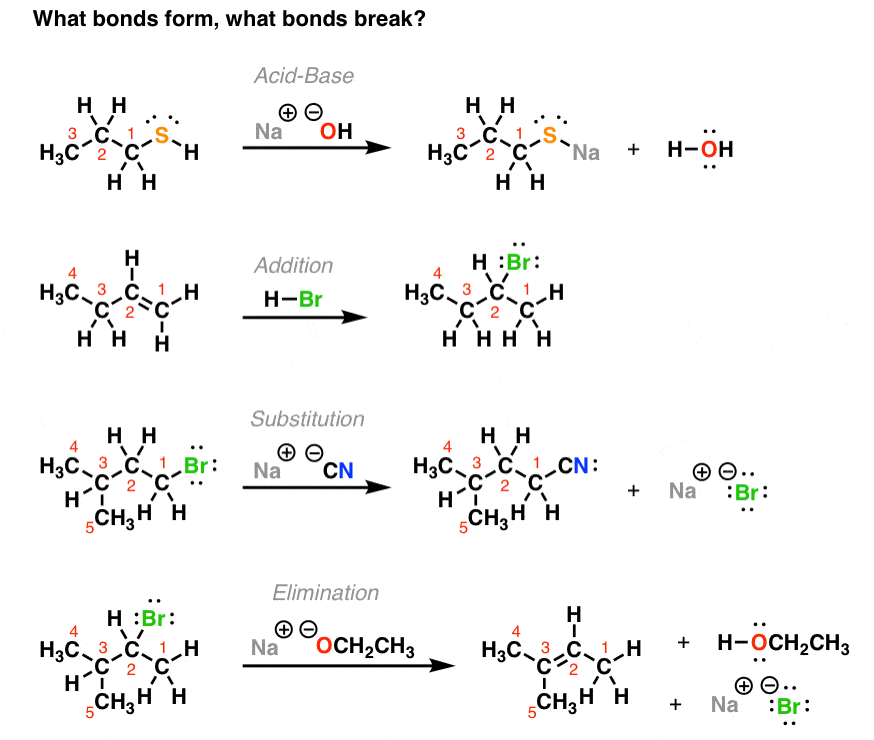Embark on a linguistic journey with organic chemistry 1 as a second language. Discover the unique challenges and strategies for non-native speakers to master this complex field. Dive into the intricacies of organic chemistry terminology, bridging the gap between your native tongue and the scientific lexicon.
Let’s unravel the mysteries of molecular structures, bonding, and reactivity, transforming organic chemistry from a foreign language into a language of empowerment.
In this comprehensive guide, we’ll explore the fundamental concepts, vocabulary, and real-world applications of organic chemistry. We’ll provide a curated list of learning resources, including textbooks, online materials, and study tips. Engage in practice problems and exercises to solidify your understanding and gain confidence in solving organic chemistry challenges.
Join us as we navigate the cultural and linguistic nuances that shape this fascinating scientific discipline.
Understanding Organic Chemistry 1 as a Second Language
Learning organic chemistry as a non-native speaker poses unique challenges. The terminology and concepts may differ significantly from those in one’s native language, leading to potential misunderstandings and difficulties in comprehension.To overcome these language barriers, it is crucial to develop strategies that enhance understanding.
This includes actively engaging with the material, seeking clarification when needed, and utilizing resources such as bilingual dictionaries and online forums specifically designed for non-native learners of organic chemistry.
Key Differences in Terminology
One of the primary challenges in learning organic chemistry as a second language is the unfamiliar terminology. Chemical terms and concepts may have different meanings or translations in different languages, leading to confusion. For instance, the term “alkane” in English translates to “alcano” in Spanish, but the concept of an alkane as a saturated hydrocarbon remains the same.
Understanding these differences and making connections between the two languages is essential for effective learning.
Key Concepts in Organic Chemistry 1

Organic chemistry is the study of carbon-containing compounds. It is a vast and complex field, but some fundamental concepts are essential for understanding organic chemistry. These concepts include molecular structure, bonding, and reactivity.
Molecular structurerefers to the arrangement of atoms in a molecule. Organic molecules can be represented by Lewis structures, which show the atoms and bonds in the molecule. The molecular structure of a compound determines its physical and chemical properties.
Bondingis the force that holds atoms together in a molecule. There are different types of bonds, including covalent bonds, ionic bonds, and hydrogen bonds. The type of bond between two atoms determines the strength and polarity of the bond.
Reactivityrefers to the ability of a molecule to undergo chemical reactions. The reactivity of a molecule is determined by its molecular structure and bonding. Organic molecules can undergo a variety of reactions, including substitution reactions, addition reactions, and elimination reactions.
Important Vocabulary and Terminology
- Atom
- Molecule
- Covalent bond
- Ionic bond
- Hydrogen bond
- Functional group
- Alkyl group
- Aryl group
- Substitution reaction
- Addition reaction
- Elimination reaction
Examples of Chemical Reactions and Mechanisms
- Substitution reaction:A substitution reaction is a reaction in which one atom or group of atoms in a molecule is replaced by another atom or group of atoms. For example, when methane reacts with chlorine, one of the hydrogen atoms in methane is replaced by a chlorine atom to form methyl chloride.
- Addition reaction:An addition reaction is a reaction in which two or more molecules combine to form a single molecule. For example, when ethene reacts with hydrogen, the two molecules combine to form ethane.
- Elimination reaction:An elimination reaction is a reaction in which two atoms or groups of atoms are removed from a molecule to form a new molecule. For example, when ethanol is heated in the presence of an acid, the hydroxyl group and a hydrogen atom are removed to form ethene.
Learning Resources for Organic Chemistry 1: Organic Chemistry 1 As A Second Language
In Organic Chemistry 1, having access to a variety of learning resources is crucial for a comprehensive understanding of the subject. Textbooks, online resources, and study materials each offer unique advantages and cater to different learning styles.
Recommended Textbooks
- Organic Chemistryby David Klein (recommended for its clear explanations and comprehensive coverage)
- Organic Chemistry: Structure and Functionby K. Peter C. Vollhardt and Neil E. Schore (known for its in-depth discussions and real-world examples)
- Organic Chemistryby Janice Gorzynski Smith (praised for its user-friendly approach and abundance of practice problems)
Online Resources
The internet provides a wealth of online resources that can supplement your textbook learning.
- Khan Academy: Offers free video lectures, practice exercises, and interactive simulations.
- Crash Course: Provides engaging and concise video lessons on various organic chemistry topics.
- Organic Chemistry Tutor: A comprehensive website with tutorials, practice problems, and a discussion forum.
Study Materials
Additional study materials can enhance your understanding and retention of the material.
- Study Guides: Provide summaries of key concepts, practice questions, and additional explanations.
- Flashcards: Help you memorize important terms, structures, and reactions.
- Practice Problems: Allow you to apply your knowledge and identify areas where you need improvement.
Effective Studying and Note-Taking
To make the most of your learning resources, it’s essential to develop effective studying and note-taking strategies.
- Active Reading: Engage with the material by highlighting, annotating, and summarizing key points.
- Spaced Repetition: Review the material at increasing intervals to strengthen your memory.
- Conceptual Mapping: Create visual representations of concepts to connect and organize information.
Practice and Application of Organic Chemistry 1

Practice and application are crucial for solidifying understanding of organic chemistry concepts. This section provides practice problems, classifies problem types, and showcases real-world applications to reinforce learning.
Practice Problems and Exercises, Organic chemistry 1 as a second language
A series of practice problems and exercises are designed to reinforce understanding of organic chemistry concepts. These problems cover various aspects of the subject, including nomenclature, structure, reactivity, and synthesis.
Classification of Organic Chemistry Problems
Organic chemistry problems can be classified into different types based on their solution methods. The following table summarizes common problem types and their respective solution approaches:
| Problem Type | Solution Method |
|---|---|
| Nomenclature | IUPAC rules |
| Structure | Lewis structures, VSEPR theory |
| Reactivity | Mechanisms, energy diagrams |
| Synthesis | Retrosynthesis, functional group interconversions |
Real-World Applications of Organic Chemistry
Organic chemistry has a wide range of real-world applications. The following list highlights some key applications:
- Pharmaceuticals: Organic chemistry is essential for the development and production of drugs and medicines.
- Materials science: Organic compounds are used in the production of plastics, polymers, and other materials.
- Agriculture: Organic chemistry plays a role in the development of pesticides, fertilizers, and other agricultural products.
- Energy: Organic compounds are used as fuels and in the development of renewable energy sources.
- Food science: Organic chemistry is involved in the preservation, processing, and flavoring of food.
Cultural and Linguistic Influences on Organic Chemistry 1
Organic chemistry is a global scientific discipline that has been shaped by the contributions of scientists from diverse cultures and linguistic backgrounds. Cultural perspectives can influence the way organic chemistry is taught and understood, and can also lead to potential biases or misunderstandings.
Influence of Different Cultures
Different cultures have developed their own unique approaches to understanding the natural world, including the study of organic compounds. For example, traditional Chinese medicine has a long history of using herbal remedies, many of which contain complex organic molecules. This has led to a rich tradition of organic chemistry knowledge in China, with a focus on the isolation and characterization of natural products.
Influence of Language
Language can also play a significant role in shaping the way organic chemistry is taught and understood. The terminology used to describe organic compounds and reactions can vary from language to language, and this can lead to confusion or misunderstanding.
For example, the term “aldehyde” is derived from the Arabic word “al-dhid”, meaning “the thing that makes something smell”. This term was originally used to describe a class of compounds that have a characteristic pungent odor, but it is now used to refer to a specific functional group.
Potential Biases and Misunderstandings
Cultural and linguistic differences can also lead to potential biases or misunderstandings in organic chemistry. For example, a student from a culture that emphasizes rote memorization may be more likely to memorize the names and structures of organic compounds without understanding their underlying chemistry.
This can lead to difficulties in applying organic chemistry knowledge to new situations.
It is important to be aware of the potential biases and misunderstandings that can arise due to cultural and linguistic differences in organic chemistry. By understanding the different perspectives that people bring to the study of organic chemistry, we can better appreciate the richness and diversity of this field.
Summary

As you embark on this linguistic adventure, remember that organic chemistry is not merely a collection of abstract concepts but a powerful tool for understanding the world around us. From pharmaceuticals to plastics, organic chemistry plays a vital role in shaping our lives.
Embrace the challenges of learning organic chemistry as a second language, and unlock the gateway to a deeper appreciation of the molecular world.
Expert Answers
What are the unique challenges of learning organic chemistry as a non-native speaker?
Non-native speakers may encounter difficulties with specialized terminology, understanding chemical concepts in a foreign language, and navigating cultural differences in teaching styles.
How can I overcome language barriers in organic chemistry coursework?
Immerse yourself in the language through textbooks, online resources, and conversations with native speakers. Utilize dictionaries, flashcards, and language learning apps to expand your vocabulary.
What are some effective studying techniques for organic chemistry?
Engage in active recall by regularly testing your understanding through practice problems and flashcards. Create visual aids such as concept maps and diagrams to enhance comprehension. Seek clarification from professors and peers when needed.